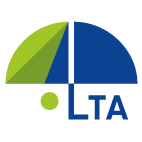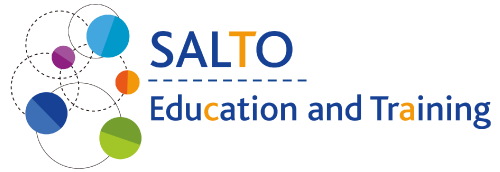CLEAR Assessment for KA210 Final Reports

Main Info
TCA Description
Themes and Goals: This is an exchange and capacity-building event
which will bring together internal and external assessors working on final
reports from Erasmus+ Small-Scale Partnerships (KA210). We are primarily
seeking to engage with experienced assessors but some new assessors might also
participate where they are expected to work on future final report assessments
for KA210. The event will provide an opportunity to come together to review
final reporting questions and documentation and to discuss what it is important
to assess at the project end, and what is no longer a key focus.
Proportionality will be discussed, as well as the four different headings
against which KA210 projects and partnerships will be discussed, namely:
Relevance, Project Design and Implementation; Partnership and Cooperation, and
Impact.
Activities:
During this event, participants will share
their own perspectives and experiences, on those issues that it is important to
consider, and those issues that can actually be judged, at the end of the
small-scale partnership funding period. Experienced-based inputs in plenary will
be completed by more practical groupwork activities and discussions.
By the end of this networking and
capacity-building seminar, participants will be able to:
·
CLASSIFY
different responses in the KA210 Final Report for Small-Scale Partnerships
under the different assessment criterion;
·
RECOGNISE
key questions and responses and their importance in determining successful
project delivery in a KA210 Small-Scale Partnership;
·
COMPARE
initial KA210 project commitments to final reporting inputs and EVALUATE
overall project successes;
·
CREATE written comments using terminology which best
reflects the overall level of achievement of the project;
ATTRIBUTE assessment scores on the basis of
perceived successes and achievements
Outline Programme:
DAY ONE: TUESDAY 26 SEPTEMBER 2023
Registration and Lunch (12:00)
Welcome and Introductions (13:00)
Collaboration and Exchange in Plenary and
Groupwork Sessions (13:30)
Coffee Break (15:00)
Collaboration and Exchange in Plenary and
Groupwork Sessions (15:30)
Close of Day One (17:00)
COMMON DINNER (19:30)
DAY TWO: WEDNESDAY 27 SEPTEMBER 2023
Welcome Back and Energiser (09:00)
Goals for the Day (09:15)
Collaboration and Exchange in Plenary and
Groupwork Sessions (09:30)
Coffee Break (10:30)
Collaboration and Exchange in Plenary and
Groupwork Sessions (11:00)
Lunch Break (12:30)
Collaboration and Exchange in Plenary and
Groupwork Sessions (13:30)
Short Coffee Break (14:45)
Collaboration and Exchange in Plenary and
Groupwork Sessions (15:00)
Close of Event for External Assessors (16:15)
Additional Planning Session for CLEAR NA Staff (16:30)
Cultural Activity
Common Dinner 19.30
DAY THREE, THURSDAY 28 SEPTEMBER
Departures after breakfast
NB The Swedish NA covers two nights of accomodation
NB The seminar is on September 26th and September 27th, two days, two nights.
Arrival for the seminar at the latest on September 26 - starting at lunch and departure Thursday morning 28.
Partners and participants
Assessors with experience of final report
assessment that are familiar with the goals of and objectives of Erasmus+
Small-Scale Partnerships (KA210). Where possible, NAs should try to cover the
three targeted fields of adult, school and vocational education.
Accompanying NA staff with
responsibility for, or directly involved in the assessment of, final reports
from Erasmus+ Small-Scale Partnerships (KA210), specifically in the fields of
adult, school and vocational education.
Pending booked places
Accepted places
TCA Participant Application
Long-term Activity Info
With
the shift of the projects towards lump-sum approaches, the assessment capacity
and knowledge of the evaluators will become very important. The move to a lump
sum scenario requires additional skills and a stronger focus on
value-for-money. Therefore, the aim is to develop a strategic model of European
training of assessors and to develop relevant training materials, share good
practices, and streamline evaluation criteria applied in all Erasmus+
participating countries.
The following aims are confirmed for the CLEAR Assessment LTA:
o to agree on the required components for assessor training with a view to enhancing quality and consistency in decentralised assessments for Key Action 2 in the fields of adult, higher, school and vocational education;
o to modularise the agreed components, introducing specific learning outcomes and notional learning hours;
o to design a blended training delivery model for use during assessor training;
o to renew and refresh existing written resources for use in the blended training delivery model for assessors;
o to develop new digital resources for use in the blended training delivery model for assessors;
o to undertake a first year pilot involving assessors in the countries of the core participating NAs (single event);
o to revise the blended training delivery model resource set taking into account first year pilot feedback;
o to consider extension of the resource set for additional use in the KA1 action: prior to second year piloting;
o to undertake a second year pilot involving assessors from all Erasmus+ programme countries (three events);
o to review the final blended training delivery model and resource set ensuring that it is fit-for-purpose;
o to outline options for the future training of assessors, including bilateral/multilateral training opportunities;
o to extend the blended training delivery model and resource set to cover final report assessment activity.
In the first year of activity, we propose to work with a core group of NAs in the review, development and early-stage piloting of the blended training model and resource set for which a single face-to-face pilot training event is envisaged for experts and NA staff from the participating countries. The first selection of countries is already proposed in the table below, taking into account past resource development contributions, LTA leadership, a desire to include NAs of different sizes and with different levels of reach and responsibilities as well as levels of interest already shown in this initiative. Core NAs will be expected to: [a] participate in planning, consultation and review meetings with the lead NA and appointed external expert; [b] provide occasional input to digital resources (e.g. short videos for use in Ted-style talks); [c] [b] provide feedback on core deliverables; and [d] ensure the participation of internal/external assessors in the first-year pilot. In the second year, the goal is to extend the pilot to all Erasmus+ programme countries, for which three separate events are envisaged in Northern, Southern and Central European locations. In the third year and beyond, a single face-to-face training event is envisaged - possibly focusing on new assessors or newly-developed resources - yet with actual event delivery informed by the results of the options appraisal in year two.


